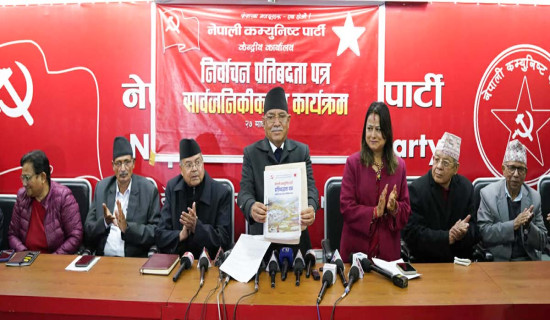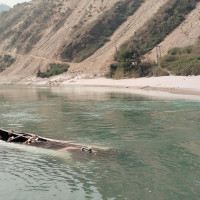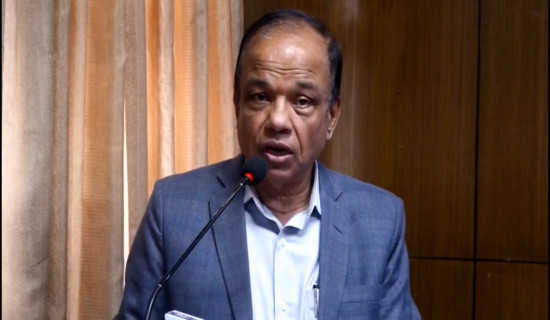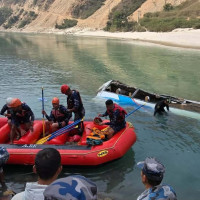- Wednesday, 11 February 2026
A Dark Day For Nepal’s Conscience
The night of 8th September 2025 was a sleepless one for most Nepalis — especially for parents and grandparents who lost their children and grandchildren, and for those who did not but could not escape the pain. The death of 20 people – mostly young people - is a tragedy unprecedented in Nepal. It will be remembered as one of the darkest days in the country’s history. Dozens of other victims and survivors are still lying in hospital beds, many without family members to care for them. There is a curfew imposed that restricts those of us who want to volunteer and go to take care of the stranded children in hospitals.
Social media has returned after its temporary suspension, but the lives of 20 young people — and the peace of mind of millions of Nepalis — were lost in a matter of seconds. These children did not take to the streets simply because social media was banned. They protested because of the relentless rise in corruption, with political leaders frequently exposed as perpetrators. They marched because they were angered by the extravagant lifestyles of the children of political leaders, whose luxury was flaunted on digital platforms, while most Nepali children still struggle to meet the necessities of life.
Voice
Gen Z has been raising its voice about the lack of access to adequate food, quality education, and livelihood opportunities—essentials that would allow them to stay in Nepal and build a future here, rather than being forced to leave for higher education or work. Is that really too much to ask? Frustrated by corruption and the inaction of political leaders and parties—some of whom have even been arrested for graft—these young Nepalis did what they have seen modelled at home. They protested, demanding that the government end corruption, take action against those responsible, and give them a safe and secure life in their own country. They want a Nepal where they could study, work, and live with dignity
The question that must haunt every citizen is this: How could police and armed forces—paid with taxpayer money — open fire on their own children? Why were they given orders to shoot when the protesters reached the vicinity of the parliament building? Could they not have been stopped earlier, perhaps near the Everest Hotel area? And even if these young protesters, still wearing their school uniforms, had entered the parliament building, what harm could they have done? Should they not have been allowed to meet the leaders they elected? If the so-called representatives of the people are truly leaders, they should have come out and spoken with these children—just as parents and grandparents do at home when children are upset, protesting, or even misbehaving.
Children usually agree to the larger rules set by guardians, but they also manage to secure some of what they demand. A government that respects its citizens could have done the same: provided tight security, engaged in dialogue, listened to their grievances, and reached a compromise. Instead of bullets, there should have been a conversation. But that did not happen. The Oli-led government stood firm, issued the order to shoot, and as a result, 19 lives—and millions of hearts—were shattered on that tragic day. Those lives can never be restored, and the date is now etched in Nepal’s history as one of its darkest moments.
Prime Minister Oli has resigned from his post amidst the raging Gen Z protests that swept across the country. Nepal’s leaders must now take responsibility, invite Gen Z into meaningful dialogue, and pave the way for genuine reform. Leadership today must prove that it has the capacity to govern, which also means admitting wrongdoing and stepping aside if necessary to make way for capable, credible leaders. Images, reports, and drone footage clearly show that the security forces — not the protesters — were responsible for the violence. The protesters were not armed. Who, then, gave the order to fire on unarmed school and college-going children? Why was lethal force used to protect a building rather than the citizens who own it?
After all, parliament belongs to the people, and the parliamentarians are elected to serve them. Should the citizens not have the right to enter their own parliament grounds and speak with their representatives? Gen Z has demonstrated remarkable courage by taking to the streets to demand accountability. Their actions should force us to reflect on the dangerous path Nepal is treading—one that risks turning the country into a kleptocracy, where wealth and power are concentrated in the hands of a few political leaders, parties, and business elites.
Mechanism
We need a mechanism to make those in power recognise this reality and act. The trust of the youth must be restored, for they are the future of Nepal. If young people are telling us that the governance system is hostile to their future, then it is time to listen. Listening must go beyond token words—it should mean an overhaul of the current government and even the opposition, whose behaviour has been dominated by petty self-interest rather than national interest.
Gen Z represents Nepal’s tomorrow, and they must be protected. The first step toward that protection is justice—for the 20 lives lost and the millions of hearts broken alongside them. Justice requires holding accountable those who fired the bullets and those who gave the orders. Equally important is creating a formal mechanism to bring the voices of Gen Z into governance, ensuring a sustained dialogue that leads to real reform. Only then can corruption be uprooted and true people’s rule begin.
(Sharma is a senior journalist and women's rights advocate. namrata1964@yahoo.com, X handle: @NamrataSharmaP)





-square-thumb.jpg)


-square-thumb.jpg)








